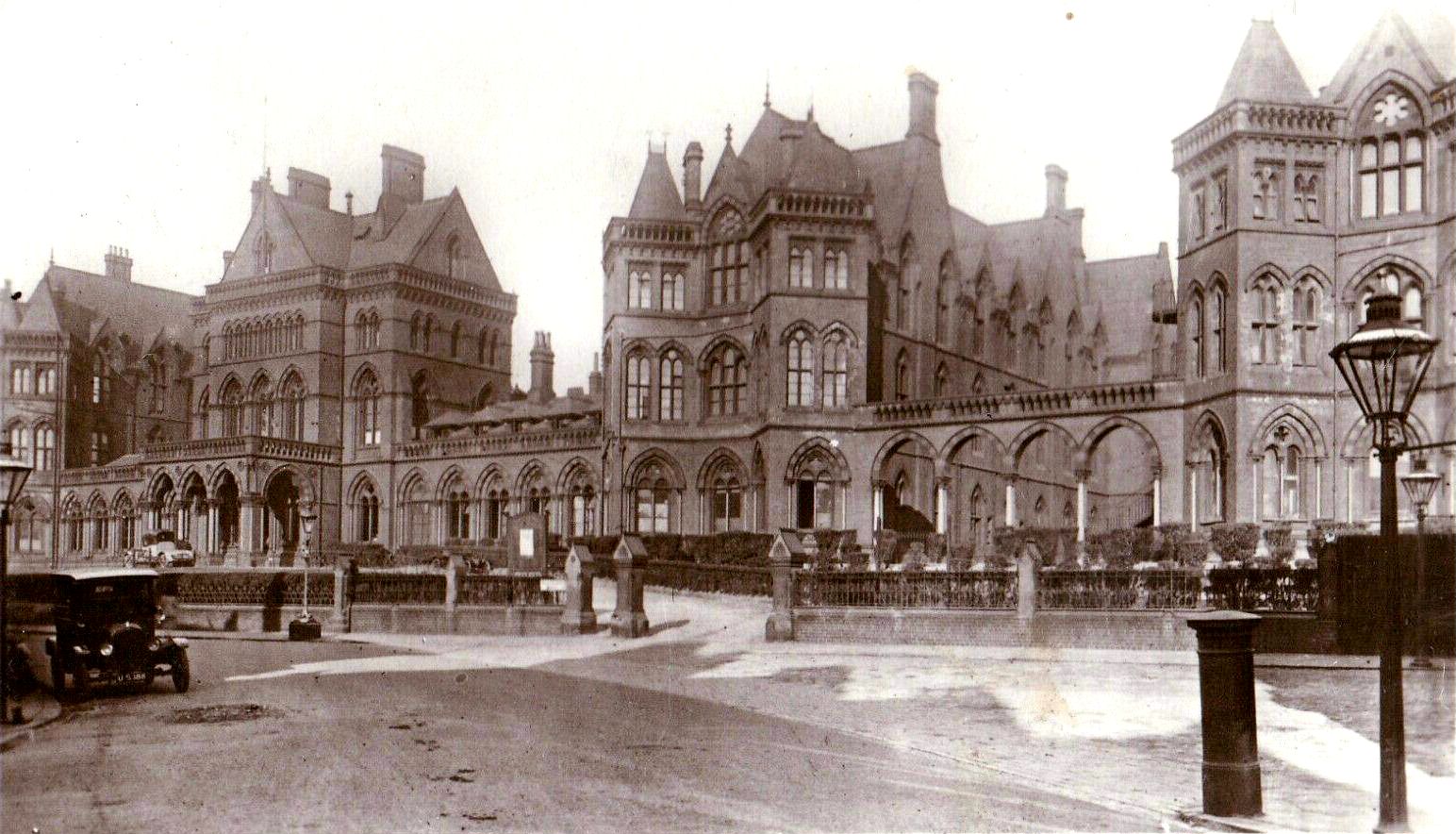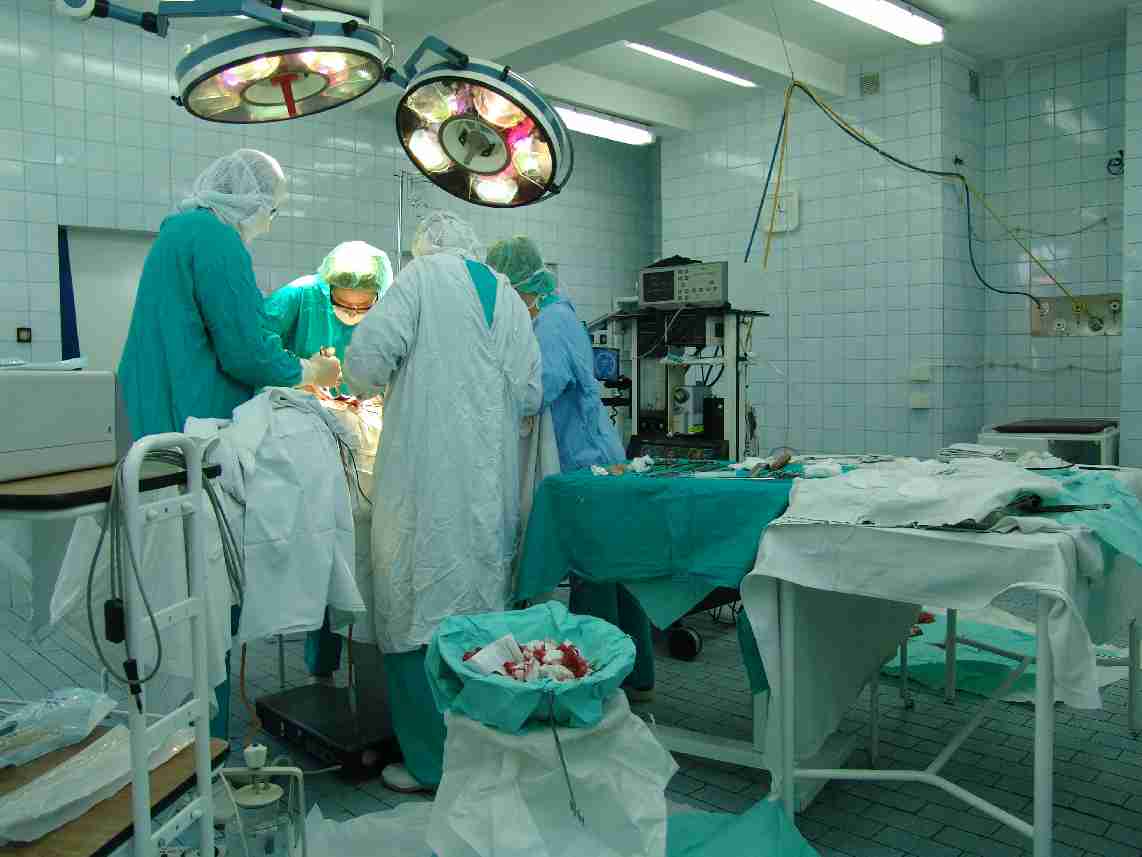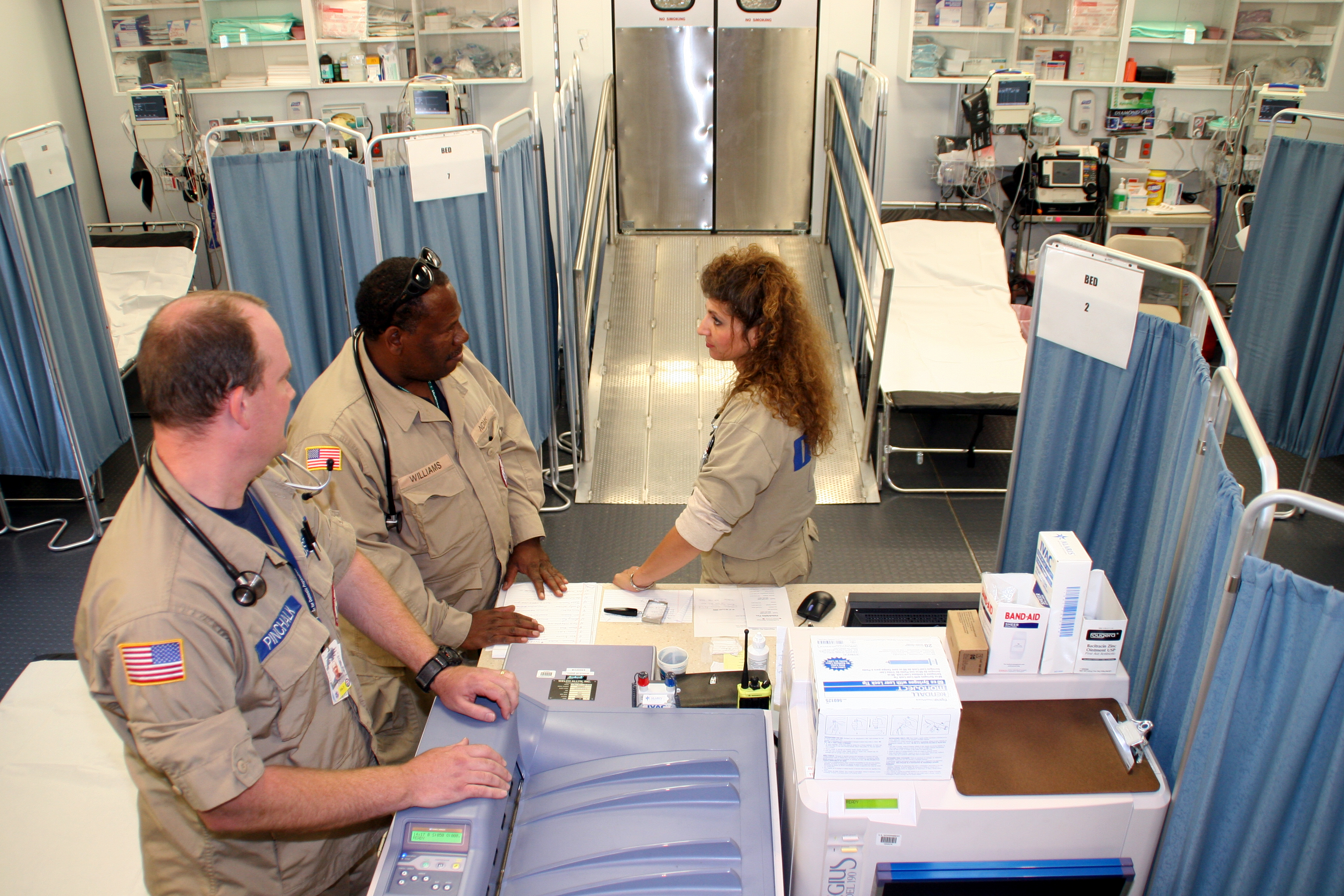|
Euphemia Steele Innes
Euphemia Steele Innes RRC DN (26 February 1874 – 9 May 1955) was a Scottish nurse who served for 21 years as matron at Leeds General Infirmary in Leeds, West Riding of Yorkshire, England. She was decorated with the Royal Red Cross 1st class in 1916 for services with the Territorial Force Nursing Service in the First World War. Innes was the daughter of a Free Church of Scotland minister. She trained at Leeds University, and worked as nursing sister, assistant matron and then matron, mainly in Leeds General Infirmary (LGI). She was already matron at the LGI when she was awarded Leeds University's first Diploma in Nursing (DN) in 1921, just before the university began its official diploma examinations for nurses. During the First World War, Innes was principal matron at the 2nd Northern General Hospital, based at Beckett Park, Leeds. The position included responsibility for the staffing of all the Leeds hospitals which had been taken over by the War Office. Innes found ... [...More Info...] [...Related Items...] OR: [Wikipedia] [Google] [Baidu] |
Royal Red Cross
The Royal Red Cross (RRC) is a military decoration awarded in the United Kingdom and Commonwealth of Nations, Commonwealth for exceptional services in military nursing. Foundation The award was established on 27 April 1883 by Victoria of the United Kingdom, Queen Victoria, with a single class of Member and first awarded to the founder of modern nursing, Florence Nightingale. A second and lower class, Associate, was added during World War I in November 1915. The award is made to a fully trained nurse of an officially recognised nursing service, military or civilian, who has shown exceptional devotion and competence in the performance of nursing duties, over a continuous and long period, or who has performed an exceptional act of bravery and devotion at her or his post of duty. It is conferred on members of the nursing services regardless of rank. Holders of the second class who receive a further award are promoted to the first class, although an initial award can also be made in ... [...More Info...] [...Related Items...] OR: [Wikipedia] [Google] [Baidu] |
Master Of Arts
A Master of Arts ( la, Magister Artium or ''Artium Magister''; abbreviated MA, M.A., AM, or A.M.) is the holder of a master's degree awarded by universities in many countries. The degree is usually contrasted with that of Master of Science. Those admitted to the degree have typically studied subjects within the scope of the humanities and social sciences, such as history, literature, languages, linguistics, public administration, political science, communication studies, law or diplomacy; however, different universities have different conventions and may also offer the degree for fields typically considered within the natural sciences and mathematics. The degree can be conferred in respect of completing courses and passing examinations, research, or a combination of the two. The degree of Master of Arts traces its origins to the teaching license or of the University of Paris, designed to produce "masters" who were graduate teachers of their subjects. Europe Czech Republic a ... [...More Info...] [...Related Items...] OR: [Wikipedia] [Google] [Baidu] |
Operating Theater
An operating theater (also known as an operating room (OR), operating suite, or operation suite) is a facility within a hospital where surgical operations are carried out in an aseptic environment. Historically, the term "operating theater" referred to a non-sterile, tiered theater or amphitheater in which students and other spectators could watch surgeons perform surgery. Contemporary operating rooms are usually devoid of a theater setting, making the term "operating theater" a misnomer in those cases. Operating rooms Operating rooms are spacious, in a cleanroom, and well-lit, typically with overhead surgical lights, and may have viewing screens and monitors. Operating rooms are generally windowless, though windows are becoming more prevalent in newly built theaters to provide clinical teams with natural light, and feature controlled temperature and humidity. Special air handlers filter the air and maintain a slightly elevated pressure. Electricity support has backup systems in ... [...More Info...] [...Related Items...] OR: [Wikipedia] [Google] [Baidu] |
Nursing In The United Kingdom
Nursing in the United Kingdom has a long history. The current form of nursing is often considered as beginning with Florence Nightingale who pioneered modern nursing. Nightingale initiated formal schools of nursing in the United Kingdom in the late 19th and early 20th centuries. The role and perception of nursing has dramatically changed from that of a handmaiden to the doctor to professionals in their own right. There are over 500,000 nurses in the United Kingdom and they work in a variety of settings, such as hospitals, health centres, nursing homes, hospices, communities, and academia, with most working for the National Health Service (NHS). Nurses work across all demographics and requirements of the public: adults, children, mental health, and learning disability. Nurses work in a range of specialties from the broad areas of medicine, surgery, theatres, and investigative sciences such as imaging. Nurses also work in large areas of sub-specialities such as respiratory, diabete ... [...More Info...] [...Related Items...] OR: [Wikipedia] [Google] [Baidu] |
Emergency Department
An emergency department (ED), also known as an accident and emergency department (A&E), emergency room (ER), emergency ward (EW) or casualty department, is a medical treatment facility specializing in emergency medicine, the acute care of patients who present without prior appointment; either by their own means or by that of an ambulance. The emergency department is usually found in a hospital or other primary care center. Due to the unplanned nature of patient attendance, the department must provide initial treatment for a broad spectrum of illnesses and injuries, some of which may be life-threatening and require immediate attention. In some countries, emergency departments have become important entry points for those without other means of access to medical care. The emergency departments of most hospitals operate 24 hours a day, although staffing levels may be varied in an attempt to reflect patient volume. History Accident services were provided by workmen's compensation ... [...More Info...] [...Related Items...] OR: [Wikipedia] [Google] [Baidu] |
Universities In The United Kingdom
Universities in the United Kingdom have generally been instituted by royal charter, papal bull, Act of Parliament, or an instrument of government under the Further and Higher Education Act 1992 or the Higher Education and Research Act 2017. Degree awarding powers and the 'university' title are protected by law, although the precise arrangements for gaining these vary between the constituent countries of the United Kingdom. Institutions that hold degree awarding powers are termed ''recognised bodies'', this list includes all universities, university colleges and colleges of the University of London, some higher education colleges, and the Archbishop of Canterbury. Degree courses may also be provided at ''listed bodies'', leading to degrees validated by a recognised body. Undergraduate applications to almost all UK universities are managed by the Universities and Colleges Admissions Service (UCAS). While legally, 'university' refers to an institution that has been granted the ... [...More Info...] [...Related Items...] OR: [Wikipedia] [Google] [Baidu] |
Board Of Guardians
Boards of guardians were ''ad hoc'' authorities that administered Poor Law in the United Kingdom from 1835 to 1930. England and Wales Boards of guardians were created by the Poor Law Amendment Act 1834, replacing the parish overseers of the poor established under the old poor law, following the recommendations of the Poor Law Commission. Boards administered workhouses within a defined poor law union consisting of a group of parishes, either by order of the Poor Law Commission, or by the common consent of the parishes. Once a union was established it could not be dissolved or merged with a neighbouring union without the consent of its board. Each board was composed of guardians elected by the owners and ''bona fide'' occupiers of land liable to pay the poor rate. Depending on the value of the property held, an elector could cast from one to three votes. Electors could nominate proxies to cast their vote in their absence. Where property was held by a corporation or company, its g ... [...More Info...] [...Related Items...] OR: [Wikipedia] [Google] [Baidu] |
Military Hospital Becket Park Leeds World War I
A military, also known collectively as armed forces, is a heavily armed, highly organized force primarily intended for warfare. It is typically authorized and maintained by a sovereign state, with its members identifiable by their distinct military uniform. It may consist of one or more military branches such as an army, navy, air force, space force, marines, or coast guard. The main task of the military is usually defined as defence of the state and its interests against external armed threats. In broad usage, the terms ''armed forces'' and ''military'' are often treated as synonymous, although in technical usage a distinction is sometimes made in which a country's armed forces may include both its military and other paramilitary forces. There are various forms of irregular military forces, not belonging to a recognized state; though they share many attributes with regular military forces, they are less often referred to as simply ''military''. A nation's military may ... [...More Info...] [...Related Items...] OR: [Wikipedia] [Google] [Baidu] |

.jpg)



